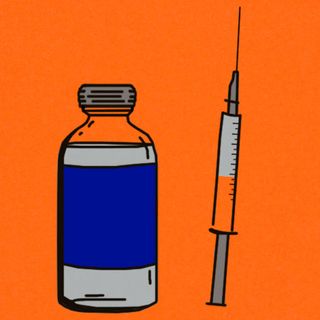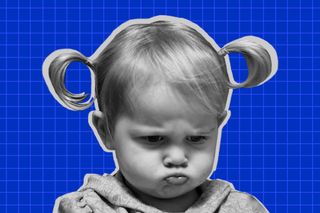
Aggressive Behavior in Kids Might Stem From Misinterpreting Others’ Actions
Helping kids consider others’ intentions might curb their aggression.

Aggressive behavior in children is a common problem, especially in toddlers and preschoolers. But, it’s not because kids are inherently unfeeling — it’s because kids actually have all of the feelings, but don’t know how to handle them appropriately. Aggression in children may also arise when they misinterpret others’ actions — which they may do frequently; they’ve had so little practice.
The good news? Parents can help explain these interactions to kids and thus mitigate aggressive behavior in children.
Researchers at Utrecht University, Netherlands, investigated whether parents’ explanations of how peers interact would help preschoolers, aged 4 to 6, interpret others’ behavior with less hostility and behave less aggressively.
“Young children may feel physically hurt, left out, or frustrated by their peers’ actions, the intent of which, at this age, is frequently unclear,” explains lead researcher Anouk van Dijk, a postdoctoral researcher in psychology at the university. “While most children interpret ambiguous slights as accidental, some feel they are hostile. By framing social situations in a positive way, parents can help their children perceive less hostility in their social worlds and thus, reduce their likelihood of behaving aggressively.”
Article continues below
van Dijk’s team conducted two studies. In the first, they asked parents to discuss with their kids peer interactions depicted in picture books, as they naturally would, then observed whether and how children’s tendencies to perceive with hostility the peers in the book changed. In the second study, researchers compared the effects of different explanations for the story-book scenarios: Some parents were instructed to discuss positive interpretations of the stories with their children (e.g., the harm was done accidentally), other parents to discuss norms and values (e.g., aggression is wrong, sharing is good), and a third group of parents to tell the stories without any discussion (the control group).
In the first study, the team found children whose parents naturally put a positive spin on the story interpreted characters’ actions as less hostile. In the second study, children of parents who described the harm as accidental, or who discussed norms and values, were also less hostile in their interpretations of characters’ actions than the children of parents who simply read the story with no discussion.
The researchers note that their study was small, and the participants, homogeneous, which is not the ideal scenario to draw hard facts from an experiment. That said, their findings suggest one tool parents can consider using to build emotional intelligence and reduce aggressive behavior in children.
“Our results suggest how parents can engage with their children in constructive conversations about peer provocations to help them interpret their interactions with peers less negatively,” says Astrid Poorthuis, assistant professor of psychology at Utrecht University, who coauthored the research published in the acclaimed journal Child Development. “Although we looked at only the short-term effects of discussing peer interactions in stories, it seems plausible that similar effects could be found if we looked at parents’ day-to-day discussions about children’s actual interactions with their peers.”
Related


WHO Recognizes Excessive Digital Gaming as Psychological Disorder
